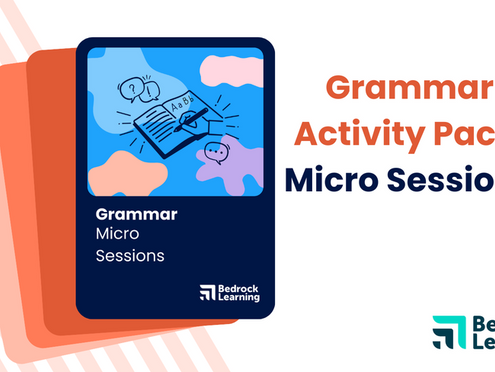While it’s hard to love something that doesn’t come naturally to you, reading is a skill that can be nurtured and improved, even for children who struggle at first. As a parent or guardian, you can have a significant impact on your child’s progress in developing reading and comprehension skills.
Read on for some great tips that you can try at home to help improve your child’s comprehension skills and increase their enjoyment in reading.
Why is reading so important for children?
The Department for Education emphasises that reading ability is crucial for a child’s academic attainment, personal growth, mental wellbeing, and success in adult life. Reading and comprehension skills are essential for a child’s development, but for some children, becoming a confident reader is not always an easy journey.
Why might my child be struggling with reading?
Children can struggle with reading for a variety of reasons. Children with special educational needs due to conditions such as dyslexia, autism or attention deficit disorders can find reading particularly challenging. It is not only children with special educational needs though, who can find it difficult to engage with reading and develop their skills. There are a range of factors which could negatively affect a learner’s progress and cause children to have difficulty with, or a lack of interest in, reading. These could include:
- Reading being associated exclusively with academic assessment and not an activity undertaken for pleasure
- A lack of successful strategies for expanding vocabulary
- The use of inappropriate texts or texts your child finds uninteresting
- Reading is not being presented in an accessible and interactive way that your child can connect with
Fortunately, there are many positive steps you can take to complement and enhance the formal literacy instruction your child receives at school. We have compiled 10 impactful activities you can try out at home to help your child to develop their reading skills and discover a genuine love of reading that will remain with them throughout their lives.
10 tips to improve reading comprehension skills at home
1. Choose the right books
Whether your child loves wizards, spaceships, animals, nature, pirates, superheroes or stories about other children, choosing the right book that is in tune with their interests and reading ability is the key starting point. Finding a story that features your child’s favourite type of setting and characters is a simple yet highly effective way of engaging their interest in reading.
2. Read out loud
Reading out loud breathes life into the text by allowing you to add expression, emphasis, and intonation, which will help to engage your child, increase their focus, and sharpen their listening skills. They will also be able to hear how new words are pronounced and practise new vocabulary for themselves if they take it in turns with you to read out loud.
3. Discuss what you read
In addition to reading out loud, taking the time to talk about what you have read will consolidate your child’s understanding of the text, and encourage them to increase their vocabulary as they describe and discuss the story with you.
4. Use props to improve comprehension
Props don’t have to be elaborate or time consuming to put together. They can be as simple as the pictures in a story book, photographs or everyday objects that may relate to the story; drawings, charts or other visual and physical aids that your child can be encouraged to make or select themselves. Integrating props into reading activities increases the level of interaction, promotes engagement and can help your child to establish more effective connections between language and meaning.
5. Build vocabulary
Talking a lot with your child will pay dividends in increasing their vocabulary. Encourage them to query any words they don’t know, put new vocabulary into a context they will understand and use synonyms they already know to explain the new word’s meaning. You could choose a ‘word of the day’ and get your child to write it down on a chart, perhaps accompanied by drawings and colours to add interest. Reading out loud, discussing what you have read and using props also all play an important role in building your child’s vocabulary, so it is important to try to do these activities on a regular basis.

Improve reading comprehension with Bedrock
Vocabulary and grammar instruction working in tandem to boost reading.
6. Try as many activities as possible
Diversifying what you do and introducing a range of activities will make reading more fun and interactive for your child. Identify which type of reading activities appeal most to your child and don’t be afraid to experiment with combining different approaches.
7. Make school reading fun
If your child is having trouble engaging with a school text, visual aids such as flow charts and pictures can be deployed to break the text down into more manageable segments. The addition of colourful sticky notes can be used to mark any key words or new vocabulary in the text. Questions and discussion should also be encouraged to stimulate your child’s curiosity.
8. Use technology
Our immersive digital literacy platform offering engaging, level-appropriate texts, human-narration and interactive activities is a highly beneficial tool for improving your child’s literacy skills. Ideal for home learning whilst also building on progress made at school, our research-based digital literacy curriculum could make a huge impact on developing your child’s reading and comprehension skills.
9. Stay involved in your child's education
Trying out different reading activities at home on a regular basis enables you to support your child’s learning. Bedrock can help you feel even more involved through our parent dashboard where you can see your child’s progress and keep track of the new vocabulary they are acquiring.
10. Encourage your child to read on a regular basis
Undertaking fun reading activities which your child finds stimulating is essential in supporting them to progress with their reading skills and will encourage them to read regularly. Bedrock will give you even more great ideas and incentives to keep your child motivated and engaged.
On our programme, for example, points are awarded for the successful completion of two lessons per week, and you have the opportunity to enter your child into our half-termly prize draw, where learners with 20 or more points per week can win fun prizes. We also stagger the availability of lessons so that learners cannot rush through too much at once, which promotes consistency in their learning and ensures your child has ample time to absorb and retain the new vocabulary and information they have learnt during each session.
Conclusion
Problems with reading can be stressful for children and parents, but the good news is, you can implement positive changes and help your child to successfully develop their reading ability. Introducing a number of effective and enjoyable reading activities at home whilst also being supported by an innovative digital literacy curriculum can build on progress made at school and lead to a significant improvement in your child’s reading and comprehension skills, increasing not only their attainment but also their enjoyment of reading.




